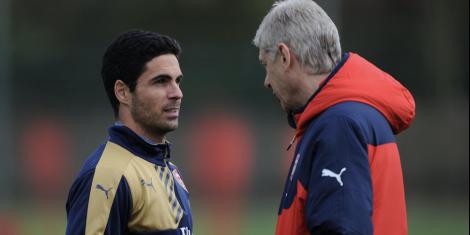
After a masterclass performance on September 26th that saw the Gunners thrashing rivals Tottenham 3-0 in a hotly contested North-London-Derby, Arteta has surely been hailed more so to the extent of Arsenal Great, Arsene Wenger.
The result further relieves the pressure on Arteta's shoulders after a rocky start to the season, while he has already proved his quality by winning the 2020 FA Cup early in his reign. Wenger, meanwhile, won the trophy seven times during his 22 seasons as Arsenal manager and also clinched three Premier League titles, including one during an unbeaten season.
Wenger managed Arsenal for a total of 1,235 games and ended his time at the club with a win ratio of 57.2 per cent. Arteta already comes close and is 94 games into his tenure having taken over in December 2019 and has won 53.2 percent of those matches so far.
Something really interesting is that the passion Arteta has mirrors that of what Arsene Wenger has for the beautiful game, and if in the long run Arteta can emulate Wenger’s title winning success as well then the fans will be far much more content with him at the helm. Wenger was in charge of Arsenal between 1996 and 2018, winning three Premier Leagues and seven FA Cups for the Gunners. In 2004, he also became the first - and only - manager to lead a side through an entire Premier League campaign unbeaten.
Wide playmakers :
Previously Arteta had opted for Pierre Emerick-Aubameyang and Nicolas Pepe as the wide men when opting for a 3-4-3. However, that front three struggled for ball retention and failed to create many meaningful chances. In the win over Spurs, Arteta fielded Emile Smith-Rowe and Saka on either side of Aubameyang. Effectively, this front three had the necessary components to drive at the opposition. Sanchez and Ozil in 2016/17, like Smith-Rowe and Odegaard this year, averaged the most key passes per game in the team. Arteta, like Wenger, decided that a striker who struggles with the ball at his feet can be accommodated if he is surrounded by players who have the ability to create goal-scoring openings.
